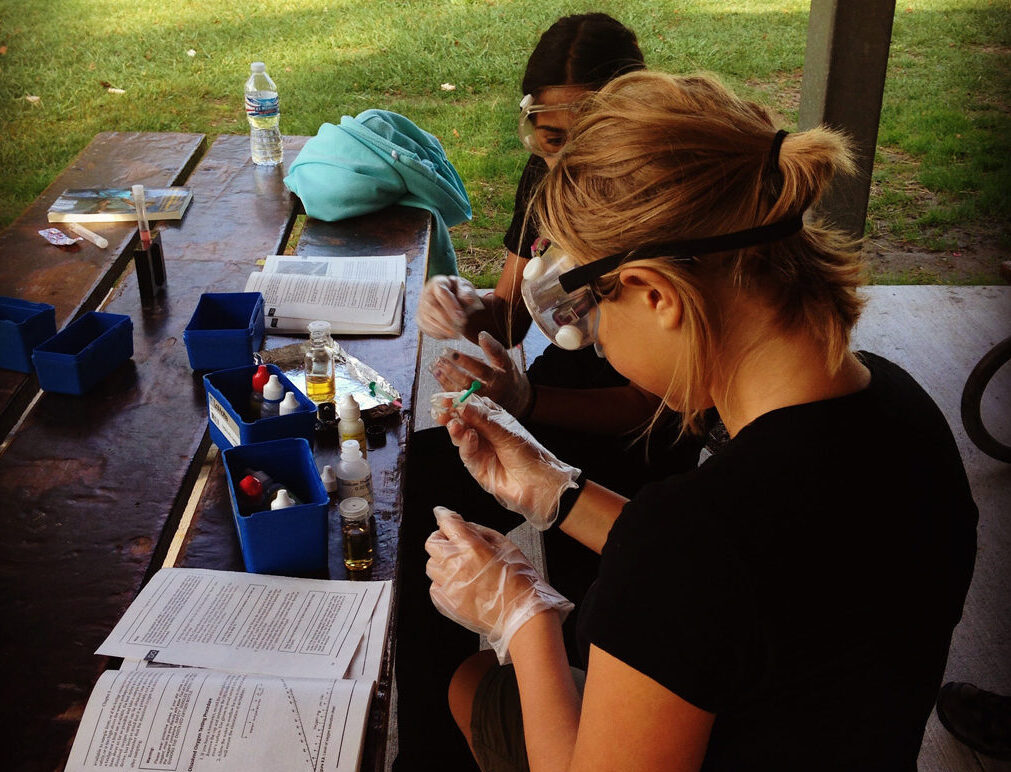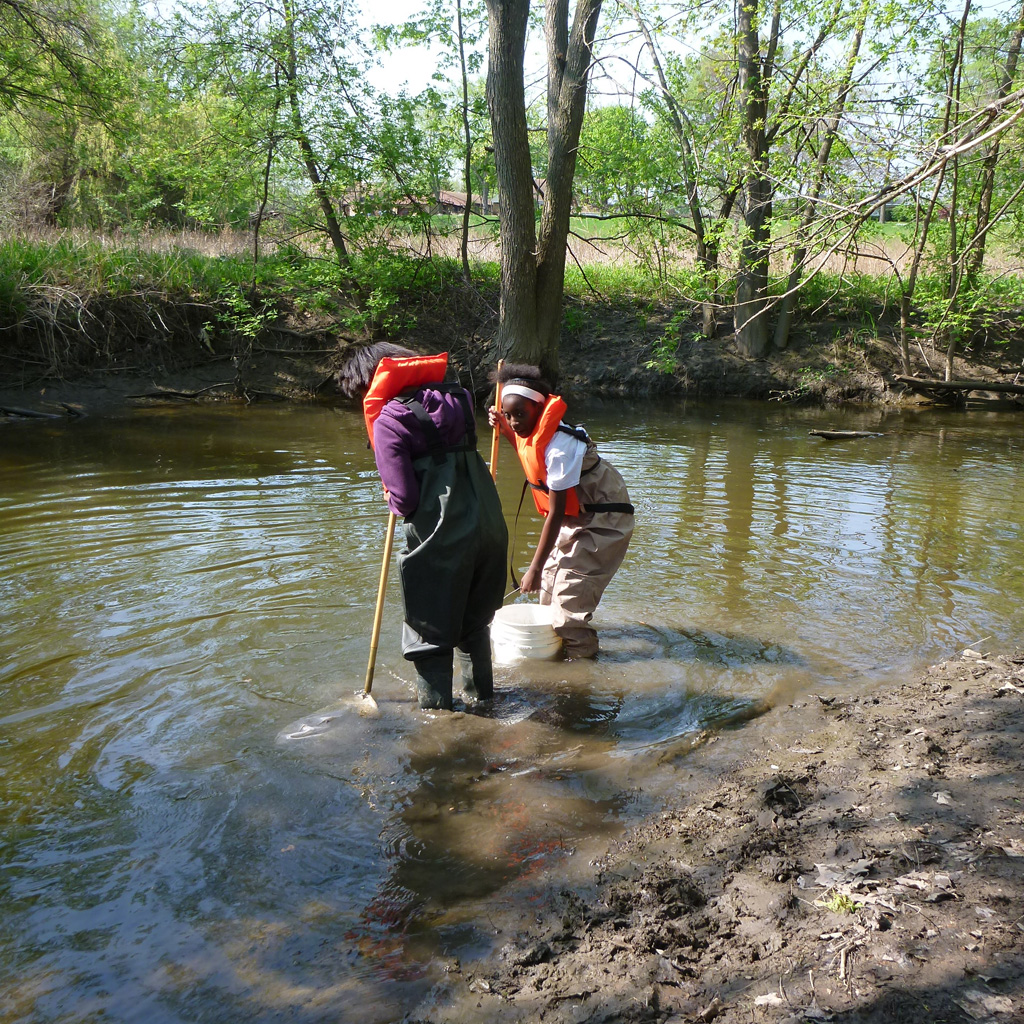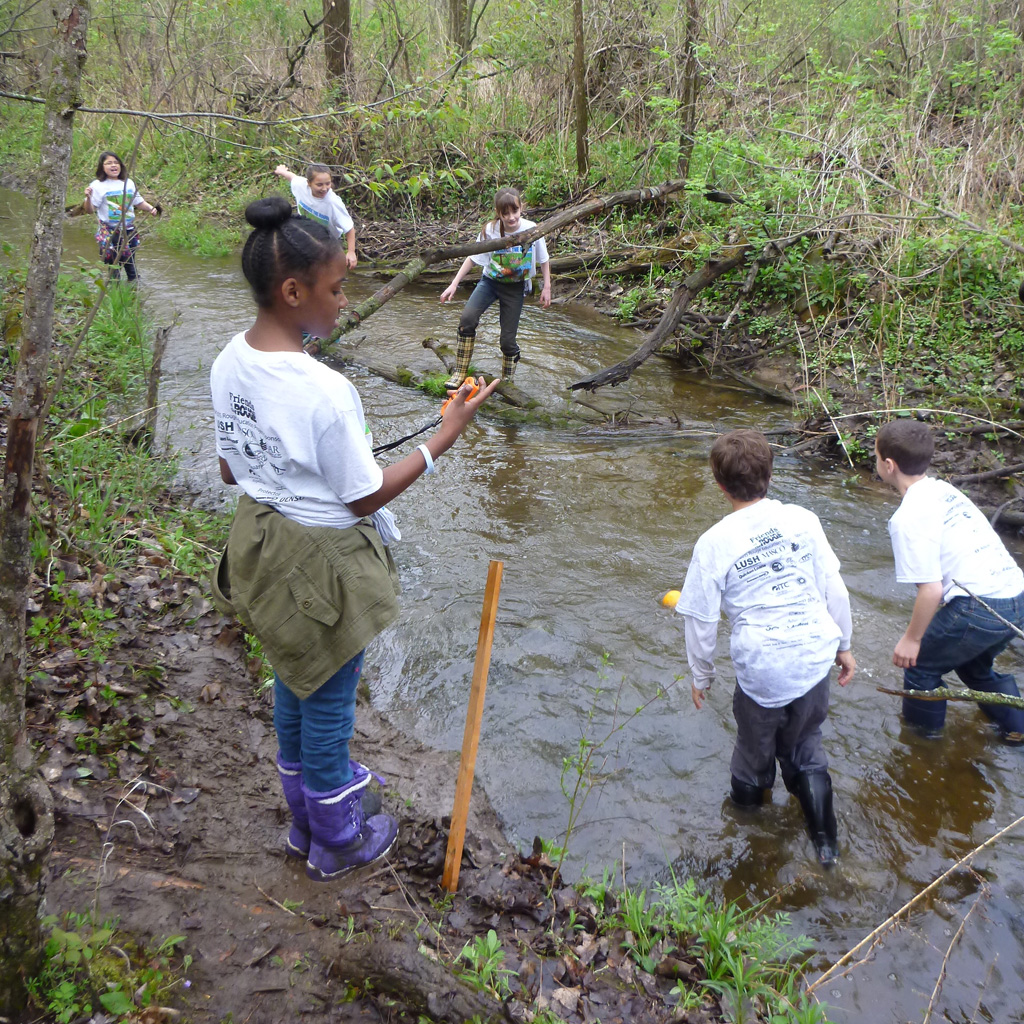The REP assesses surface water quality in three main categories: chemical, biological, and physical. Examples of what students monitor are below.

Chemical
- Dissolved oxygen
- Fecal coliform (E. coli)
- pH
- Biochemical oxygen demand
- Change in temperature
- Total phosphate
- Nitrates
- Turbidity
- Total solids
Biological
- Students and teachers will conduct their very own “bug hunt,” sampling for aquatic organisms such as aquatic insect larvae, clams, snails, and crayfish.
- Organisms are categorized according to pollution tolerance, and are identified and counted to determine an overall water quality score.


Physical
- Weather conditions
- Air & water temperature
- Local land use
- Riparian vegetation
- Bank erosion & stability
- Habitat & substrate
- Water odor & appearance
- Stream characteristics
- Overall physical conditions of the river
- Calculate stream discharge
- General observations
- Fish & wildlife
- Cleanliness
- How has the landscape changed from last year?
- Reflect on how physical conditions could be improved at the site